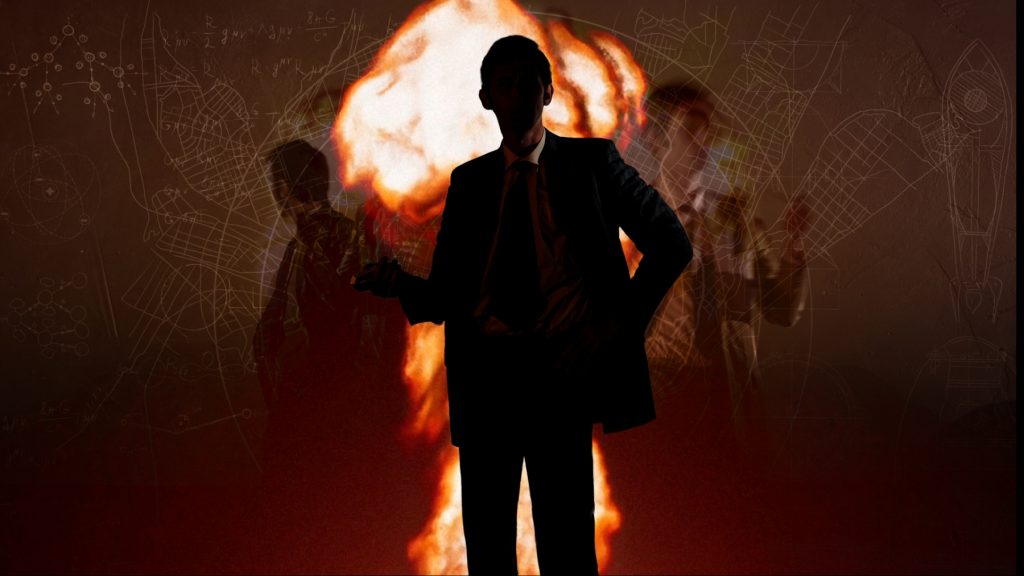
Just a few hours ago, Oppenheimer shut out the Academy Awards with a haul of seven Oscars. They were Best Film, Director, Actor, Supporting Actor, Cinematographer, Editing and Original Score. What this cinematic masterpiece did not win, was the prize for best sound. This is a little ironic given that the audio tech and ingenuity behind the soundtrack of Oppenheimer was a major contributor to five of the seven statues.
There was hardly a moment in Oppenheimer when sound didn’t play an integral role in the tension. But there was one particular idea so cunning, it was almost invisible to the naked ear, so to speak.
You’re in a movie theatre and you’re looking at a bedsheet on a washing line. It’s billowing a little because there’s a wind blowing. Compared with what’s to come, it may be the most innocuous scene in the entire movie. A filler or cutaway, as the industry calls it, just to give the viewer’s brain a quick breather. Except this is a film by Christopher Nolan and the last thing on his mind is to give his viewer a breather.
But a flapping sheet can’t be integral to the plot about the first successful nuclear detonation, surely. Could it be a metaphorical image? No, metaphors have a habit of being obvious once you apply your mind. So what was the reason for it?
The purpose was probably the sneakiest device for cinematic story telling yet harnessed.
Sound
When Christopher Nolan sat down with Richard King (who has four Oscars to his credit) to discuss this scene, it was all about the audio, not the visual. And how to take the viewer from being a bystander to becoming totally immersed in the story. Without them realising it was happening.
Richard, whose previous audio work on The Dark Knight, Master and Commander: The Far Side of the World, Inception and Interstellar had previously won him Oscars for sound design, wanted to use the crack of a whip every time the sheet blew hard enough to become parallel to the ground. He wasn’t after the volume of the crack per se, just the sharpness of the sound. This was, well, music to Mr. Nolan’s ears. Because when combined with an ever-so-slightly exaggerated wind sound, the impact on cinema audiences was dramatic.
But not immediately dramatic. What the sound did was put the audience in a state of tension which they were unaware of, at the time. Even without a lot of volume, the cracking sound managed to create a subconscious sense of disquiet and foreboding. Basically the audience were put in wince mode, waiting for the inevitable. So when the actual explosion happened, the effect on the audience was twice as powerful as it would have been with no prior sheet cracking.
Of course Nolan and King being the geniuses they are, when the explosion did occur there was silence for about 30 seconds. Before the noise of hell nuked our eardrums. So after unknowingly waiting with impending fear for at least an hour, the silence was even more shocking. Because the sound of the explosion would have provided a release from the tension created by the sheet. But nooooo, Chris and Richard were having none of that, thank you very much. And that’s just the the tip of the iceberg concerning what Messrs. Nolan and King did with audio; to leave us unsettled, confused and frightened. What kind of sick, twisted minds do these guys have?
The kind of minds that know how to tell a story that will keep you on the edge of your seat for three hours, that’s what kind.
The Oscar for the Sound category went to Zone of Interest and I have no doubt that it was thoroughly deserved. But if I may indulge in a touch of naughtiness? So cunning was this particular piece of sound craft, were the Academy members who were voting on the Oscars even aware of how it contributed to the sledgehammer that came later?
Asking for a friend.
Inside Telecom provides you with an extensive list of content covering all aspects of the tech industry. Keep an eye on our Insights sections to stay informed and up-to-date with our daily articles.